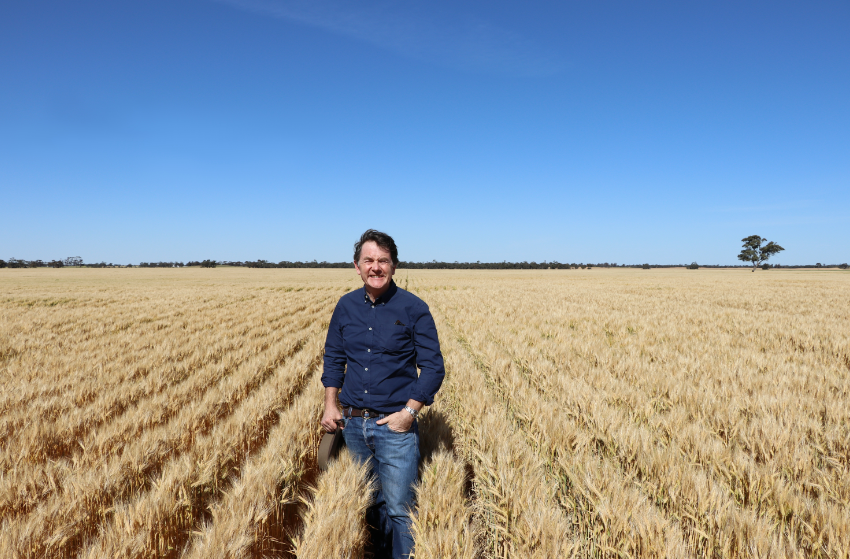Breadcrumb
- Home
- Industry Insights
- Mandatory reporting spells big opportunity for climate tech sector
Mandatory reporting spells big opportunity for climate tech sector
New climate reporting laws, kicking off in 2025, passed the Senate last week. Here’s the opportunity for climate tech startups

The Australian Senate passed the new laws last week, setting in place a new climate-related financial disclosure regime that kicks off at the start of 2025 for Australia’s biggest companies, then trickling down to others in the coming years.
While the Treasury Laws Amendment (Financial Market Infrastructure and Other Measures) Bill 2024 doesn’t sound like much, it requires companies to produce a sustainability report under the Corporations Act if they meet reporting thresholds, such as revenue of $50 million or more, assets worth more than $25m and more than 100 employees. Phased implementation means companies at that level will be required to report from July 2027. If you have $500m in revenue or $1bn in assets, January next year is the start date.
Amendments to the legislation include scenario analysis disclosures addressing temperatures above the Paris Agreement targets, and the goal of limiting the increase to 1.5°C.
It’s complex because companies will need to compare the mandated scenarios compare to existing climate risks and impairments, disclosing any potential threats to the business. The legislation also includes scope 3 emissions reporting – those generated by assets not owned or controlled by the reporting organisation, but part of a company’s value chain.
To get our heads around what’s happening, and to understand the opportunity for climate tech startups, Startup Daily asked three experts to explain, here's what they said.

Anthony Wilmott, Cofounder and CEO of Melbourne-based climate tech company, DAS.
It’s fantastic to see this legislation pass Parliament, and we believe geospatial technology will have a significant role to play in helping organisations track their emissions data — especially in finance and agriculture. It won’t be long before financial services companies, major supermarkets and exporters are need this information from their rural partners, and without the right tools in place it can be difficult to monitor.
Regulatory moments, such as this, end up creating new opportunities for startups to assist with compliance and governance. Some of our best and enduring partnerships have been come as a result of new regulation.
Companies in finance, such as DAS, are used to complying with new regulations as they are introduced. The trick is to get ahead of the regulation where you can — which is one of the reasons we underwent ISO accreditation, allowing us to work with banks and insurance firms, as early as we could.
But for plenty of other startups I could see this being a hurdle that they need to start managing now — even if the deadline for introduction for smaller companies is in 2027.
This starts with providing clarity for larger companies on what exactly their need to request to their suppliers. This needs to happen sooner rather than later so that startups have time to help larger firms put that foundational data in place, so that it can be communicated across the supply chain ahead of the deadline for reporting.
Adam Milgrom, Partner at Melbourne-based VC, Giant Leap
This legislation marks a step-change in how all organisations in Australia will need to consider their emissions, and even at a surface level, it’s incredibly complicated.
Larger companies already have frameworks in place to track all sorts of metrics for their organisation. But with the introduction of this policy, it’s going to shift some of that burden onto their supply chain, who may not even realise they have to have this information on hand.
It’s going to require new processes and innovation to make sure this is done effectively and efficiently.
Cat Long, Cofounder and CEO of Trace
All companies, from startups through to large firms, should be seeking advice on this from experts. Specialists, like Trace, are perfectly placed to support organisations to make sure this is done correctly.
The bill approved last week will see emissions reporting rolled out across three groups from 2025 through 2027 according to companies’ net assets, revenues, and full-time employees.
This means that from July 2027, companies with as few as 100 employees and $50 million in revenue will be required to publicly disclose their climate-related risks and carbon emissions.
With regard to Scope 3 emissions, companies have been given a one-year grace period and limited directors’ liability, so critics have argued the original requirements have been watered down.
However, from my perspective, this is still a huge and significant shift in reporting requirements, especially for smaller companies in that final group (group 3), most of whom do not publicly disclose their financial performance, let alone their climate risks and opportunities.
While most startups and emerging companies will not meet the group 3 threshold by 2027, they will be affected by implication.
Mass adoption of Scope 3 emissions reporting will mean that affected companies require their suppliers to report and manage their carbon emissions. After all, Scope 3 typically makes up over 70% of a company’s footprint, so it is impossible for them to decarbonise without engaging their supply chain.
The good news is measuring carbon emissions is not as complex as it sounds, especially for small companies.
At Trace, we pride ourselves on helping SMEs confidently measure, manage, and report their emissions leveraging the data and resources available to them.
However, my advice is to start early: you don’t want to be figuring out how to measure your carbon emissions and climate risks for the first time in public or when your biggest client asks you to!
This article first appeared in Startup Daily on August 27, 2024





